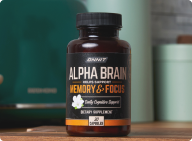
In our digitally-driven, 24/7 world, the pursuit of mental acuity and focus has become a top priority for many. Nootropics, a burgeoning category of supplements often termed “smart drugs,” have captured the imaginations and wallets of millions seeking an edge in their cognitive performance.
But with an industry as nascent and yet explosive as the nootropics market, how do you, the consumer, separate the game-changers from the placebos? This article endeavors to be your lighthouse in the swirling sea of cognitive supplements, empowering you to wade through the marketing hyperbole and make informed choices that enhance rather than compromise your cognitive well-being.
Understanding Nootropics
Before we begin parsing the plethora of nootropic options, it’s crucial to understand exactly what these supplements are. Coined in 1972 by Romanian psychologist and chemist Dr. Corneliu E. Giurgea, the term “nootropic” refers to compounds that can enhance memory, increase focus, facilitate learning, and protect the brain against physical and chemical assaults. They are often celebrated for their potential to optimize mental functions and can include natural compounds like caffeine and L-theanine, as well as synthetic substances.
Responsible usage is foundational in any discussion about nootropics. It is imperative to remember that these supplements are not a silver bullet for cognitive ailments or a replacement for a healthy lifestyle. Instead, when integrated into an already-balanced routine, they have the potential to provide a valuable and ethical enhancement.
Debunking Common Myths
Nootropic supplements have their fair share of myths and misconceptions. Companies in this industry must adhere to strict guidelines regarding claims and representations, yet misinformation persists. It’s essential to dismantle these misconceptions to make judicious choices.
One common misconception is that nootropics are akin to prescription drugs, implying they are a cure-all rather than a mere supplement. In actuality, nootropics should be seen as part of a holistic approach to mental wellness. Furthermore, the notion that all brands are created equal is fallacious. Variability in ingredient quality, quantities, and synergistic formulations can lead to drastically different results.
Another myth that clings to nootropics is their association with intelligence-boosting scenarios—a fallacy that’s not only unproven but potentially dangerous. While nootropics can enhance certain cognitive functions, they cannot increase one’s intelligence per se. Understanding and imparting this basic distinction is vital for maintaining realistic expectations when introducing nootropics into a routine.


- Bottom Line: Supports Cognitive Function with Scientifically Researched Ingredients.
- Ingredients: l-theanine, vitamin b6, huperzine a, bacopa and more.
- Benefits: Supports focus, stress management, and cognitive performance.
- Shipping: Free trial available for customers in the USA, shipping costs apply.
- Cancellations & Refunds: Cancellation-25 days; 90-day return policy for unopened items
- Supports Cognitive Function with Scientifically Researched Ingredients.
- Supports focus, stress management, and cognitive performance.
- Free shipping over $100 order
- Cancellation-25 days; 90-day return policy for unopened items
- Bottom Line: Supports Cognitive Function with Scientifically Researched Ingredients.
- Ingredients: l-theanine, vitamin b6, huperzine a, bacopa and more.
- Benefits: Supports focus, stress management, and cognitive performance.
- Shipping: Free trial available for customers in the USA, shipping costs apply.
- Cancellations & Refunds: Cancellation-25 days; 90-day return policy for unopened items
- Supports Cognitive Function with Scientifically Researched Ingredients.
- Supports focus, stress management, and cognitive performance.
- Free shipping over $100 order
- Cancellation-25 days; 90-day return policy for unopened items
Comparing Nootropic Brands
With an informed perspective, it’s time to compare some leading nootropic brands. We’ll take a deep dive into Alpha Brain, one of the pioneers in this nascent market, and juxtapose it against other noteworthy contenders.
Alpha Brain
Alpha Brain, endorsed by a famous mixed martial artist, markets itself as a “complete, balanced nootropic” designed to support memory, focus, and processing speed. A look at their official webpage brings forward a blend of well-researched ingredients such as Bacopa Monnieri, L-theanine, and Huperzine A—all with promising cognitive-enhancing properties. However, the efficacy and balance of these ingredients must be scrutinized to glean their true worth for consumers.
A check on consumer reviews and testimonials can also shed light on the real-world performance of Alpha Brain compared to its price point. Is the supplement delivering on the promise of lucid dreams and enhanced flow states, or is the shine merely reflective of clever branding?
Other Leading Brands
Several other brands have surged into the market, touting their unique formulations and proposed benefits. For instance, companies like Mind Lab Pro emphasize a research-backed approach, veering heavily towards natural compounds.
In stark contrast, Ciltep markets its stack as all-natural and achievement-focused, perfect for the student or corporate high-flyer.
Each brand’s unique selling proposition (USP) promises an edge, but how do they measure up in the ruthless arena of consumer reviews? Some users may find Ciltep’s artichoke extract and Forskolin stack to be a wonder, while others might find it underwhelming for the price. Meanwhile, Mind Lab Pro’s championing of Theobromine may resonate with some customers as a remarkable energy enhancer.
Comparing these brands isn’t just about sheer numbers—how each blends interacts with the body, the bioavailability from the digestive system, and the potential for sustained, healthy usage underlie the larger narrative.
The decision to supplement cognition-enhancing compounds is a deeply personal one, influenced by individual needs and goals. This article is not a substitute for professional advice but an aid for the savvy consumer navigating a dense marketplace of products.
When selecting a nootropic, consider factors such as the quality of ingredients, company transparency, third-party testing, and the supplement’s alignment with your lifestyle. Look beyond the slick marketing to findings from unbiased sources and the experiences of fellow consumers.
Cognitive wellness should be a well-informed and deliberate pursuit, ensuring that the choices you make for your mental clarity are as sharp and considered as the focus you seek to achieve. After all, in the realm of brain health, the smart consumer is the one who knows which nootropic suits them best.
*The above shall not be considered as an expert or professional advice for any matter. These statements have not been evaluated by the food and drug administration. These products is not intended to diagnose, treat, cure, or prevent any disease.
